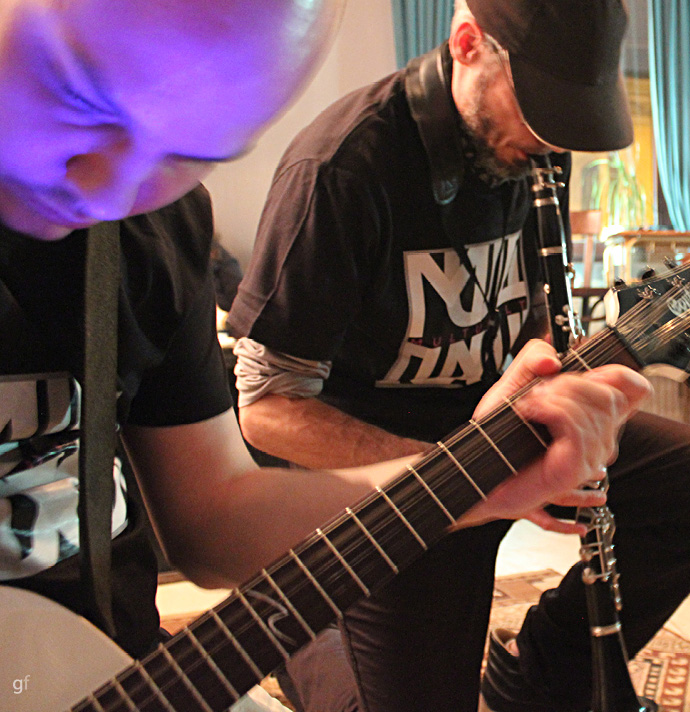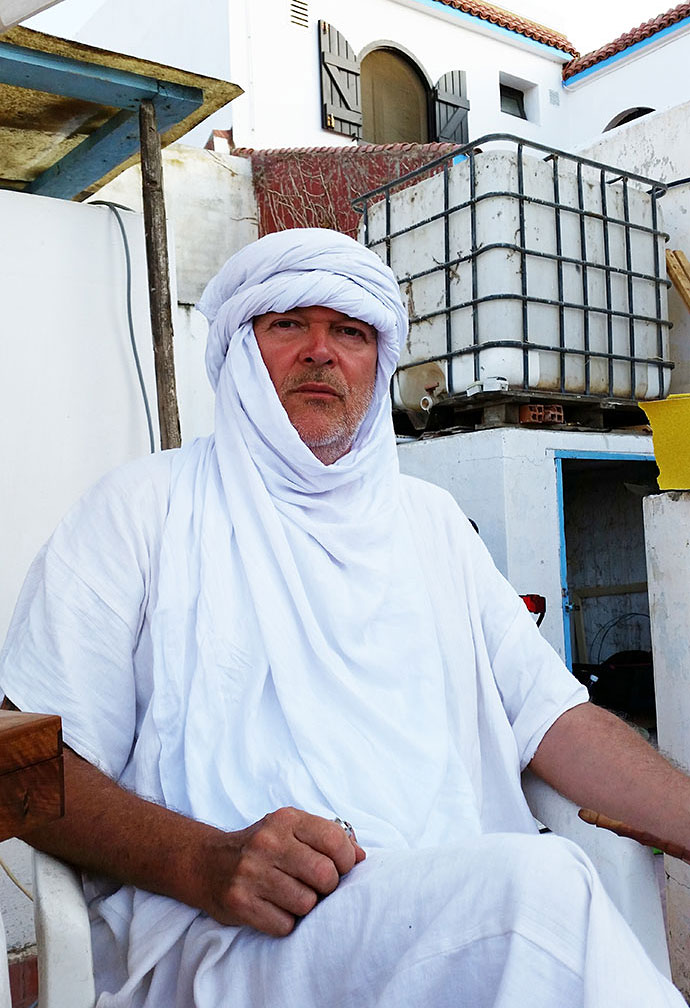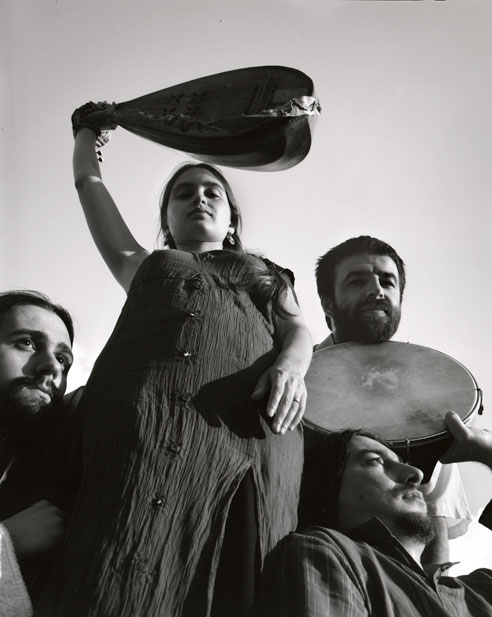Angel's Breath, Sahara Grooves and Yemenite music
When the nights are warm, it's actually a good time to listen to music under the stars. And fortunately, creative concepts for open air concerts are gradually emerging on a smaller scale. You have here three not so easy to consume summer albums.
Angel's Breath
Mitar Subotić, Milan Mladenović, João Parahyba, Fabio Golfetti
Croatia Records
"Angels Breath" was a project of the singer Milan Mladenović from the Belgrade rock band Ekaterina Velika and the pioneer of electronic music and producer of yugoslavian and brazilian artists, Mitar Subotić. When Subotić moved to São Paulo in 1990, the duo got new impulses. In 1994 an album was recorded in Brazil which became a musical testament, because Milan Mladenović died of cancer a little later. This recordings circulated only among friends, but they never lost their intensity and strenght. Mitar Subotić, whom everyone in Brazil called Suba, integrated the voice of an inhabitant of the Amazon rainforest in one of the songs, back in the 90ies, Suba sensed that the indigenous peoples were being wiped out from their lands. On „Angel's Breath“ he operated the keyboards, lead singer Milan Mladenović played accordion and trumpet, João Parahyba contributed the percussion parts and Fabio Golfetti played his guitar with a glissando technique, in which he stroked the strings with a short metal rod. The 11 songs have Serbo-Croatian, Portuguese and English lyrics, because „Angel's Breath“ evolved in many sessions and became an amalgam of the style of Belgrade rock band Ekaterina Velika, Brazilian rhythms, ambient sounds and electronically processed music. Many songs are against blind hatred and nationalism, because in the Western Balkans warlords ruled in 1994. The sound pioneer Mitar Subotić - aka Suba, who died in 1999 after a studio fire, created music of a fourth world with his friends. For me it was long overdue that "Angel's Breath" will be released again. A stroke of luck.

Glsah Sanaanea with Shiran
Shiran
Batov
When I got „Glsah Sanaanea with Shiran“, the new album from Shiran Avraham, I thought, well, another pop version of Yemeni Jewish songs. But the singer from Tel Aviv proved me wrong. This time, on an album recorded with an excellent acoustic band, Shiran bows to songs that her grandmother brought to Israel from Yemen in 1949. Longing and deep connectedness resonate from her singing. The album title "Glsah Sanaanea with Shiran" means "an informal meeting among friends with Shiran", who make music together, but music that sounds more like Sanaa in Yemen than hip Tel Aviv. Ben Aylon and Roei Fridman give these recordings the percussive backbone, otherwise the sound is based on kanun, flute, violin and oud, like a traditional orchestra all over the Middle East. While Shiran's first album played with western pop influences, the new one boldly goes back in time and unfolds the core of these songs. There are nevertheless songs that look to the future, especially the one recorded with singer and cellist Eyal El Wahab, better known as El Khat - a shooting star of Yemeni music in Israel. The beauty and courage of these recordings may only become apparent after listening to them several times, but they bring another colour in the mosaic of the rediscovery of Jewish music from Arabic-speaking countries.

Afropentatonism
Alhousseini Anivolla and Girum Mezmur
Piranha
The album „Afropentatonism“ could also be entitled Algher, which in Tamashek, the language of guitarist Alhousseini Anivolla, means peace. His album "Afropentatonism", recorded together with Girum Mezmur, mainly features songs about the desire for peace in the Sahara. The two guitarists from Niger and Ethiopia met for the first time in 2005 at a festival, their common project "Afropentatonism" combines repetitive grooves with hypnotically rough guitar sounds; above them hovers the leaning back vocals of Alhousseini Anivolla. The fraternally jamming guitarists are joined by a reserved drummer and two other musicians on the Masinko, a single-string Ethiopian box-spike lute and the bass-like lyre Krar. The sextet is completed by 78-year-old Ayele Mamo from Addis Ababa with honey-soft mandolin playing. The album title refers to the pentatonic scale, originated in Mesopotamia around 3000 BC. This scale is found in blues, jazz, country and rock music and this album fuses such archaic scales with contemporary grooves, setting a sign of pan-African solidarity. You can also dance to this music, especially on the last track. "Afropentatonism" rethought, a predominantly contemplative but grandiose soft album.
Despre autor












